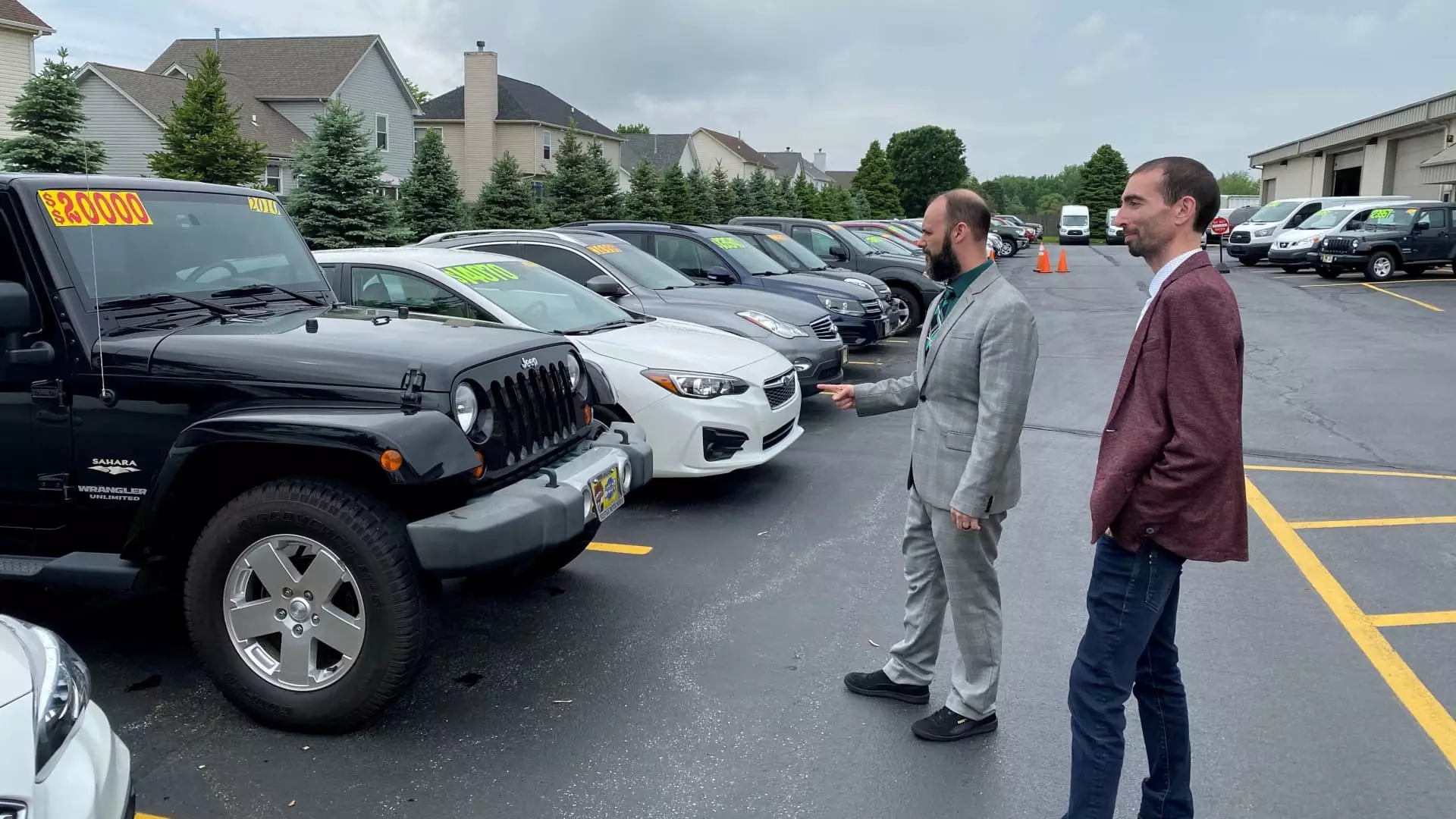As the U.S. enters 2025, a palpable sense of renewed optimism permeates the auto dealership landscape. This resurgence is notably attributed to the election of President Donald Trump, suggesting that political sentiment significantly influences economic outlooks within the auto retail sector. The recent “Q4 2024 Dealer Sentiment Index” from Cox Automotive sheds light on the attitudes of dealers, who are grappling with the implications of changing political environments and shifting market dynamics. Despite this newfound confidence regarding general economic conditions, one striking aspect is the reluctance toward electric vehicle (EV) sales. Many dealers appear unconvinced that the upcoming Trump administration will bolster the demand for EVs, signaling a complicated relationship between government policy and market potential.
While dealers are optimistic about broader market conditions, their outlook for EV sales is markedly dim. A majority of surveyed dealers expect a decline in EV sales in the near term, which indicates a growing apprehension towards government policies that could undermine the market for these environmentally friendly vehicles. This skepticism primarily revolves around potential changes in federal support, specifically the tax credits that encourage consumers to invest in EVs. Recent commentary from Cox Chief Economist Jonathan Smoke underscores the vital role of these incentives, which have been shown to catalyze both new and used vehicle sales. If anticipated cuts to consumer credits come to fruition, it could precipitate a downturn in EV transactions, further complicating the industry’s transition to cleaner sales models.
Despite troubling visions for electric vehicles, the overall sentiment among car dealers has shown a significant uptick, as reflected in the market outlook index score from Cox Automotive. The leap from 42 to 54 represents the optimism running through the dealership community, signifying that more dealers perceive favorable conditions for doing business. This positive momentum is especially encouraging as the index had plunged to one of its lowest historical points just a year prior, indicating a recovery not only in dealer sentiment but also in potential consumer engagement. This results not only from political stabilization post-election but also reflects signs of a thriving pricing environment for both new and used vehicles, which have remained high amidst economic fluctuations.
The political climate in the U.S. is undeniably intertwined with the economic fortunes of car dealerships. A survey indicates that only 35% of dealers perceive the political landscape as a hindrance to business—a notable decrease from previous quarters. This shift portrays a less politically charged environment, permitting dealers to focus their energies on other pressing business strategies rather than worrying perpetually about the ramifications of governmental shifts. With a more congenial outlook afforded by recent electoral outcomes, dealers appear more committed to nurturing their businesses in a recovering economy, which is essential for fostering consumer trust and boosting sales.
Publicly traded auto dealers have enjoyed a relatively prosperous year, driven by heightened demand and robust stock performance. Companies like AutoNation and Lithia Motors have posted remarkable gains, reinforcing the broader narrative of market recovery. Despite remaining stuck in a climate of high prices and supply constraints, their stock performance illustrates the resounding belief that fundamentals are improving for these companies, even as they navigate the inherent challenges of high consumer pricing. Group 1 Automotive’s impressive 40% growth highlights how optimism within the dealer network translates into tangible market confidence among investors.
As we transition into 2025, the auto industry stands at a crossroads. While optimism pervades the outlook for traditional vehicle sales, hurdles loom large for electric vehicle proliferation, particularly if political changes threaten to destabilize the frameworks underpinning EV incentives. However, the increasing confidence reflected among dealers points to a more robust auto retail environment, one that many hope can weave together the complexities of emerging technologies with longstanding market preferences. It remains to be seen how dealers will adapt to these challenges, but the sentiment trending upward may signal a fresh chapter for the U.S. auto industry.


Leave a Reply